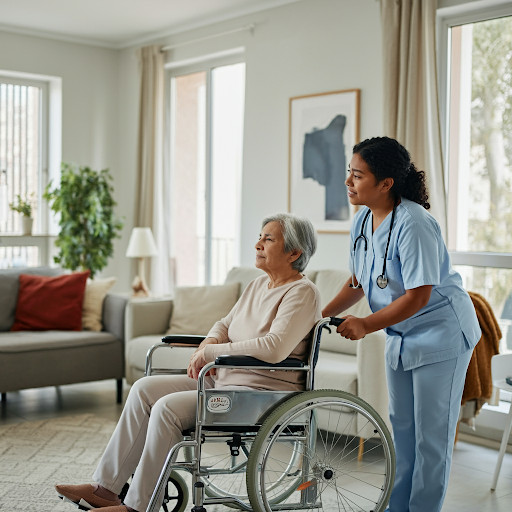Maintaining independence is a fundamental human desire, particularly as we age. However, various health conditions, injuries, or simply the natural aging process can make everyday tasks challenging. That’s where understanding the difference between Activities of Daily Living (ADLs) and Instrumental Activities of Daily Living (IADLs) becomes crucial.
At Professional Home Care Services, we’re dedicated to helping individuals live fulfilling lives in the comfort of their homes. Our compassionate caregivers provide personalized support with ADLs and IADLs, ensuring our clients maintain their dignity and independence.
What are ADLs?
ADLs are the basic self-care tasks essential for daily living. These include:
- Bathing and showering: Maintaining personal hygiene.
- Dressing: Selecting clothes and getting dressed.
- Toileting: Using the restroom and managing incontinence.
- Transferring: Moving from one position to another, such as getting in and out of bed or a chair.
- Continence: Controlling bowel and bladder functions.
- Eating: Feeding oneself.
What are IADLs?
IADLs are more complex activities that allow individuals to live independently in their community. These include:
- Light housework: Doing laundry, washing dishes, and tidying up.
- Meal preparation: Planning and preparing meals.
- Medication management: Taking medications correctly and on time.
- Shopping: Purchasing groceries and other necessities.
- Transportation: Getting around the community, either by driving or using public transportation.
- Managing finances: Paying bills, balancing a checkbook.
- Using a telephone or other communication devices.
The Difference Between ADLs and IADLs
While both ADLs and IADLs are important for independent living, the key difference lies in their complexity and impact on daily life. ADLs are fundamental self-care tasks, while IADLs are more complex skills that support independent living within a community.
Challenges Faced by Individuals Struggling with ADLs and IADLs
Difficulty with ADLs and IADLs can significantly impact an individual’s quality of life, leading to:
- Decreased independence: Reliance on others for basic needs can lead to feelings of frustration and loss of control.
- Social isolation: Difficulty with mobility and community access can limit social interaction and contribute to loneliness.
- Reduced safety: Difficulty with tasks like cooking or medication management can increase the risk of accidents and health complications.
- Emotional distress: Struggling with daily tasks can lead to anxiety, depression, and decreased self-esteem.
How Personal Care Services Can Help
Our personal care services at Professional Home Care Services are designed to provide tailored support with ADLs and IADLs. Our compassionate caregivers can assist with:
- Bathing, dressing, and grooming
- Toileting and incontinence care
- Meal preparation and feeding
- Medication reminders
- Light housekeeping
- Transportation to appointments and errands
- Companionship and emotional support
By providing assistance with these tasks, our caregivers help individuals maintain their independence, dignity, and quality of life.
Contact Us Today
If you or a loved one is struggling with ADLs or IADLs, don’t hesitate to reach out to Professional Home Care Services. We can provide an in-home assessment to determine your needs and develop a personalized care plan in coordination with your primary care doctor.
Call us at (414)541-6010 to learn more about how we can help.
We’re committed to providing compassionate, high-quality care that enables individuals to live their best lives at home.

Recent Comments